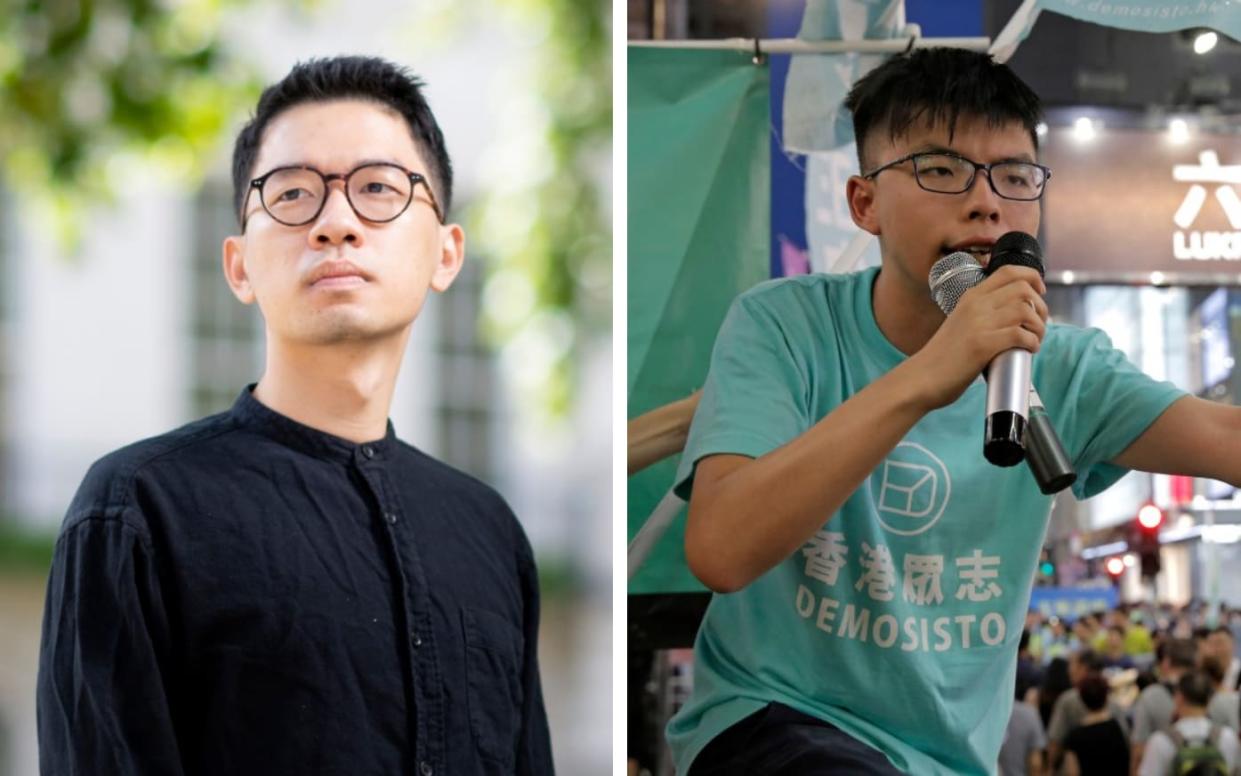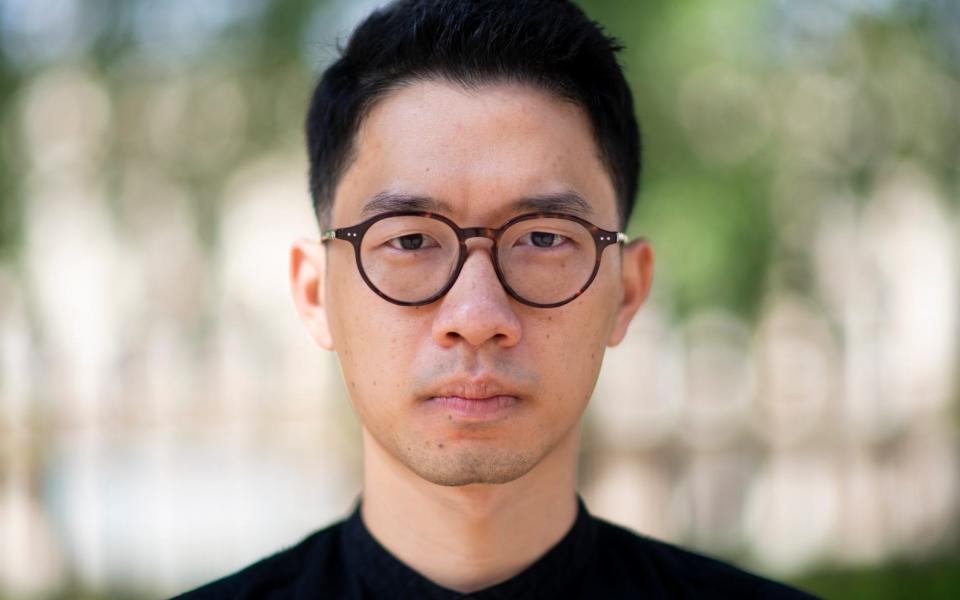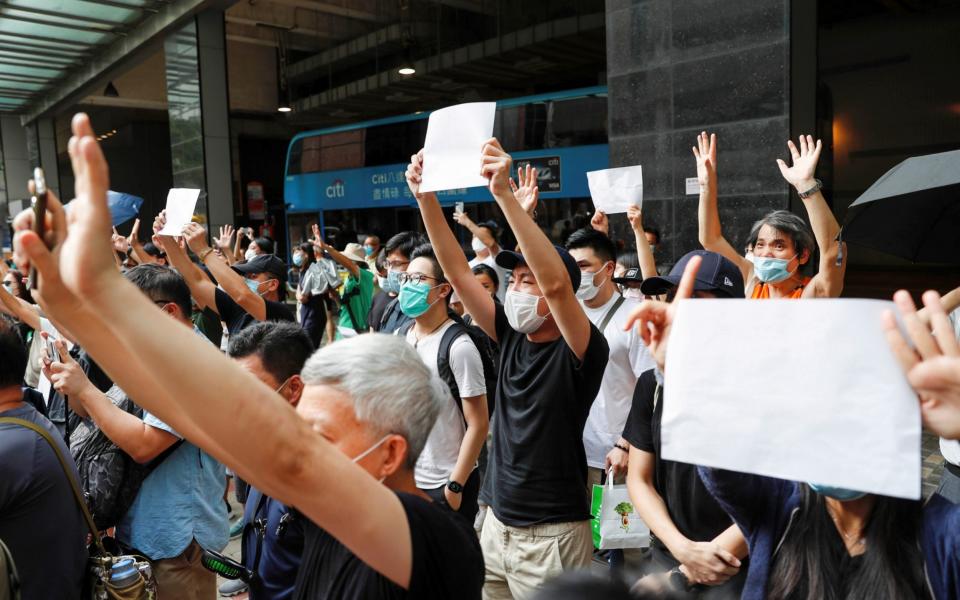A tale of two Hong Kong dissidents challenging China from opposite ends of the globe

In Hong Kong’s ultra-humid summer of 2014, 21-year-old Nathan Law met 17-year-old Joshua Wong for the first time in an air-conditioned conference room, surrounded by the territory’s iconic glass-plated skyscrapers. As representatives of their respective student groups, the two young men were at a meeting to discuss the burgeoning pro-democracy movement that was spreading like wildfire through the territory. That autumn saw both Law and Wong rise to global prominence as leaders of the Umbrella Movement, when thousands of Hong Kongers took to the streets (many of them carrying yellow umbrellas to protect themselves from police pepper spray) to protest China’s interference in their electoral system.
They later co-founded Demosistō, the pro-democracy party, and became inseparable political allies, rarely away from the megaphone at a street rally. In 2017, they stood side-by-side in the dock as they were sentenced to six months in prison for illegally occupying a public square, along with their activist friend, Alex Chow.
But their paths diverged in a remarkable fashion earlier this month. Whilst 23-year-old Wong has vowed to stay in the territory to fight “until the last minute”, Law, who turned 27 on Monday, said hasty goodbyes to his two adopted street cats and stuffed his backpack with clothes, before boarding a night-time flight from Hong Kong to London, where he is setting up a European wing of their pro-democracy movement. He could not even say a proper goodbye to his parents in case they were accused of aiding his subversion. After take off, he took a photograph of the territory, twinkling through the plane window – possibly the last time he will ever see it.
The differing fates of the two anti-Beijing dissidents highlights the dilemma posed for Hong Kong’s seven million residents by the sweeping national security law enacted by China on June 30 June, without any discussion in Hong Kong’s legislature – to stay or to go? The deeply controversial law makes ambiguously defined crimes of seperatism, subversion, terrorism and “collusion with foreign elements” punishable by life in prison; effectively banning, say opponents, any criticism of the government. If you’re reading this, Beijing says it applies to you, too: anyone around the world who criticises the Chinese Communist Party (CCP) could, in theory, be arrested upon arrival in Hong Kong.
The law was swiftly condemned by the US, UK, and EU as an attack on human rights and a violation of the Sino-British Joint Declaration, signed by Margaret Thatcher in 1984 (in preparation for Britain’s return of sovereignty over Hong Kong to Beijing in 1997), in which China promised the territory partial autonomy under a rule of “one country, two systems”. The very real risk of a life behind bars became too much for Law, who says he is “not optimistic” he will ever see his parents again – if they visit him in London, they risk prosecution upon their return.
“It’s a tough decision to leave behind your family and connections,” he tells me when we Zoomed this week from a London location that he asked to be kept secret. His eyes are tired but he greets me with a warm smile, and is chatty, charming, and meticulously polite, with no hint of the hubris you might expect from a Nobel Peace Prize-nominee (he was put forward for the 2018 award by a group of American Senators, along with Wong and Chow). “For me, it’s more than a personal choice – we’ve got our responsibilities, and I hope that my decision will make the movement more prominent internationally.”

Over the phone, 6000 miles away in Hong Kong, Wong talks with similar sadness about the departure of his ally and friend, with whom he has shared many a geeky conversation about Marvel superheroes. In contrast to Law’s loquaciousness, Wong speaks with a brisk, almost-robotic matter-of-factness – a style honed from years of addressing street rallies. “I’ve known him since the Umbrella Movement and trust him a lot,” Wong says. “Based overseas, he will bring our voice to the global community.”
Born three years apart in the Nineties, the pair are among the first cohort of Hong Kongers to have no memory of British rule, although both grew up reading Harry Potter. Besides their taste in books, their childhoods were markedly different. Wong has long been intensely political: at around 13, he remembers crying with frustration when his father Roger, an IT consultant, took him to volunteer at a home for destitute old people. “What’s the point of these visits if nothing ever changes?”, he asked. His mother, Grace, was a family counsellor who helped Wong after he was diagnosed with dyslexia at seven. Both devout Christians, they cancelled their wedding celebrations in 1989 in solidarity with the victims of that summer’s Tiananmen Square massacre. By 15, Wong had already led a successful territory-wide protest against a new school curriculum that cast China’s authoritarian system in a glowing light.
The young Law, in contrast, had little interest in politics and instead dreamt of becoming a professional e-sports player. His parents spent most of their life in mainland China, suffering under the famines of Chairman Mao’s Cultural Revolution and moved to Hong Kong – the “golden city” – when Law was six. But their time in China imprinted upon them a fear of the CCP; they did not want Law to go into politics, and have spent the last six years “really worried” about what Beijing might do to him. Law stumbled into politics largely by accident, he says, as a result of China’s encroachments on the territory’s freedom.
Indeed, it was a decision taken by the Chinese government in 2014, to row back on their promise of universal suffrage for Hong Kong, that eventually brought Wong and Law together, organising student boycotts and demonstrations on their university campuses. On September 26 that year, Law told Wong: “We need an escalation.” Scaling a 10-foot fence, they stormed Civic Square, triggering a 79-day sit-in dubbed ‘Occupy Central’. The pair were arrested and initially sentenced to community service. But, perhaps keen to make an example of them, officials appealed against their sentence and had it increased in 2017 to six to eight months in prison, plus a five-year ban on running for any political office.
“It was a shock to me and also to Hong Kong, because we were in the first batch of political prisoners to receive prison for a peaceful demonstration,” remembers Law. “We didn’t intend to harm or damage anything, we were just crossing a fence.”
Law was sent to Tong Fuk prison, where he shared a cell with 20 other inmates, most of them gangsters. He spent his time in the prison workshop, making clothes for other inmates, with the occasional trip to the outdoor yard. He shrugs off his time inside as “very routine, tedious, boring … it didn’t feel like a prison in mainland China where you get tortured and questioned all the time.”

Wong was sent 30 miles away to Pik Uk prison, where he struggled with the strict 6am wake-up call: “I’m not a morning person”, he says. The highlight of the week came on Sunday, when inmates gathered around a television to watch re-runs of soap operas. He kept himself busy by sweeping the canteen floor, and writing letters to the outside world, in which he quotes Hagrid, one of JK Rowling’s best-loved characters. In one letter, published in his autobiography, Unfree Speech, in January, he writes, “So far the biggest source of discomfort is the bed. In fact, calling it a bed is an overstatement. It’s nothing more than a wooden plank with no mattress.”
Although their paths have now taken them to opposite sides of the globe, Law and Wong share the view that the world needs to do more to support the people of Hong Kong. Both are pleased with Dominic Raab’s recent decision to offer a path to UK citizenship for the three million residents of Hong Kong eligible for a British passport – though Wong points out that this “lifeboat” is insufficient without “pressure on China”. And both praise the Government’s decision this week to expel the Chinese company Huawei from the UK’s 5G network. “People have an illusion that these companies are not owned by the CCP,” says Law. “I think it’s a wise move.” Both, also, criticise China’s handling of coronavirus: “There is proof the Chinese government hid important information at the beginning,” says Law, “China has to take responsibility for spreading this deadly disease.”
Together, the pair have already been through more in their twenties than many friends may in a lifetime. Do they think they will ever meet again? “I hope that day will come soon, but I’m not very optimistic,” Law says, with a sad shrug. Wong adds: “I wish to see him again – I hope for the best and prepare for the worst. It’s time for the world to stand up for Hong Kong.”

 Yahoo News
Yahoo News 
